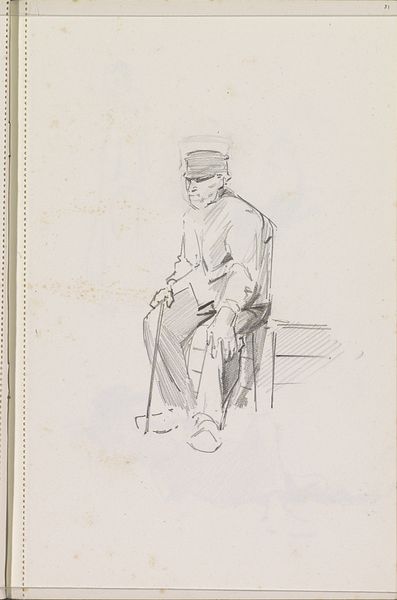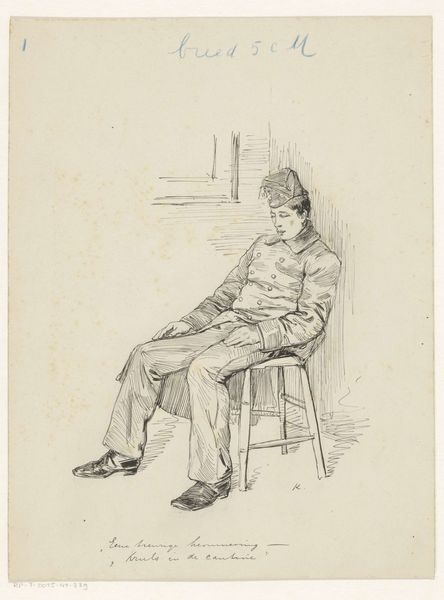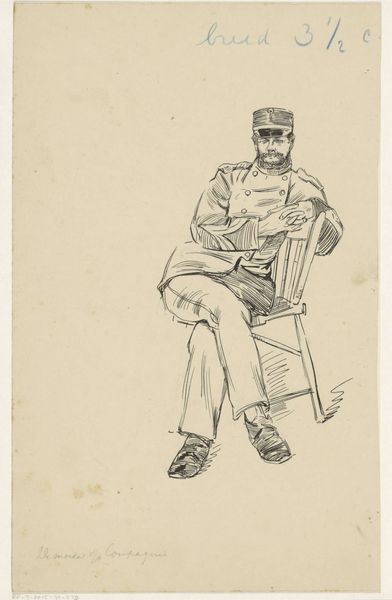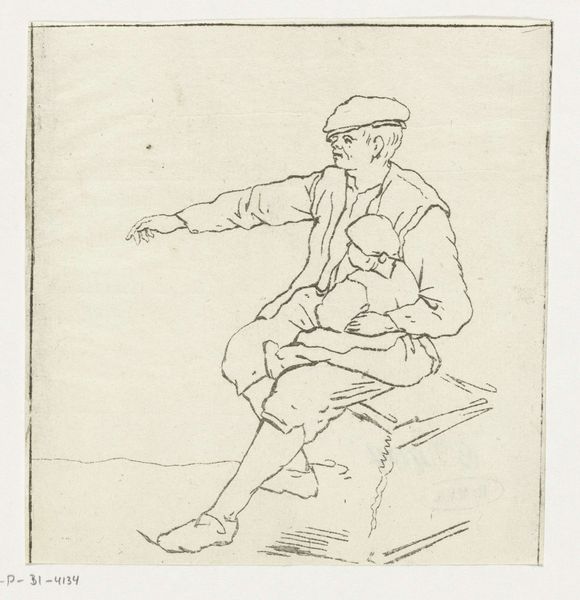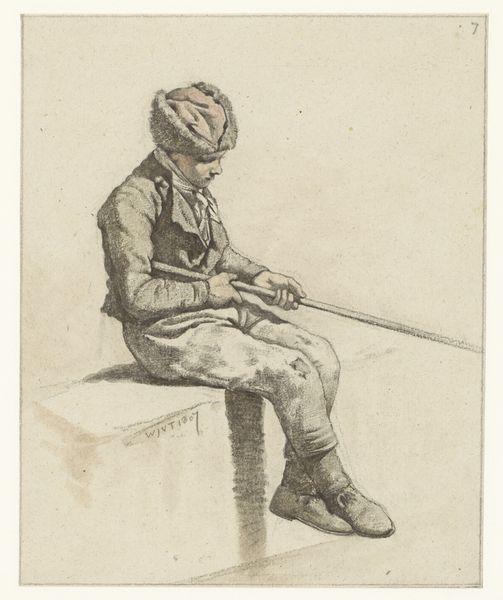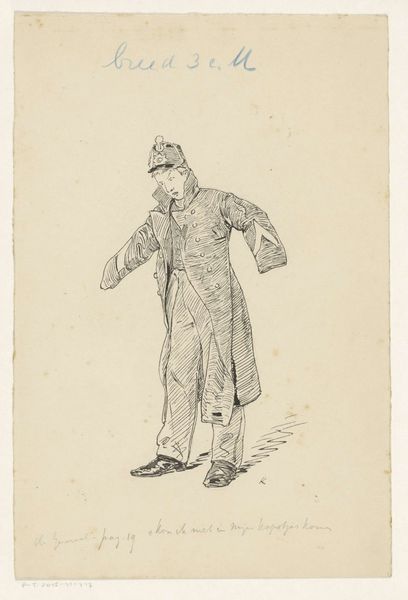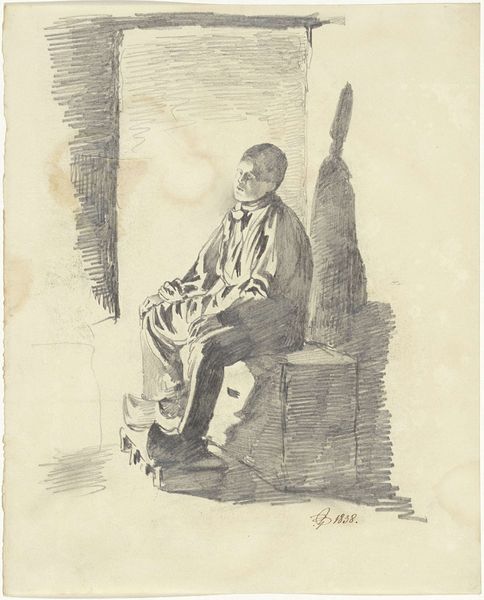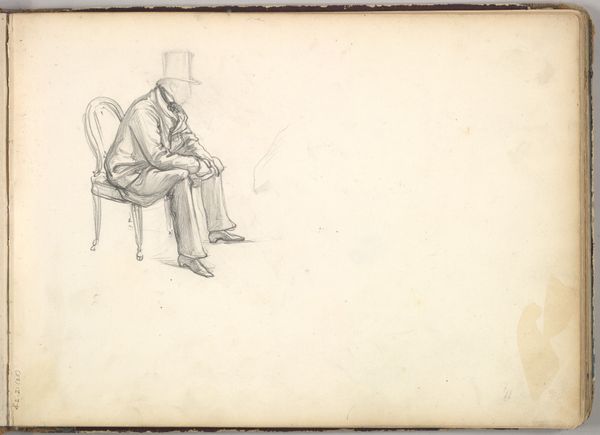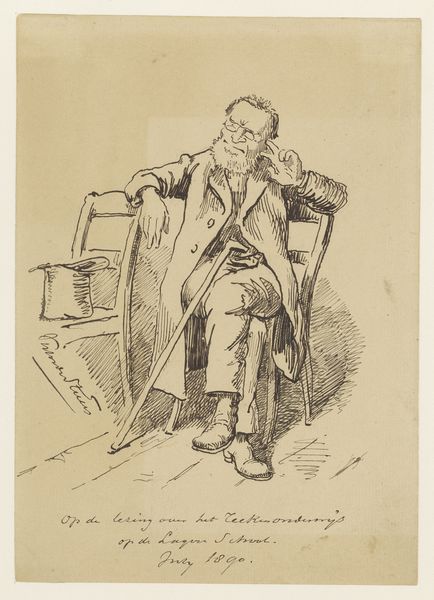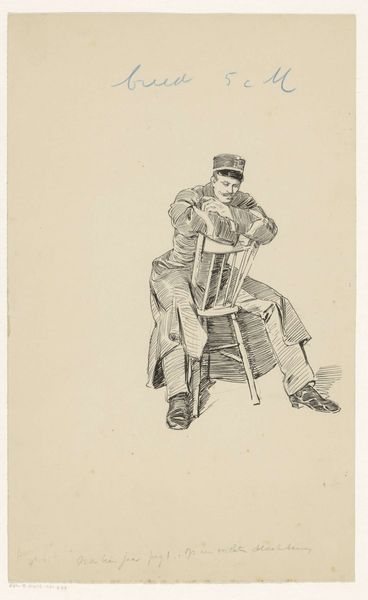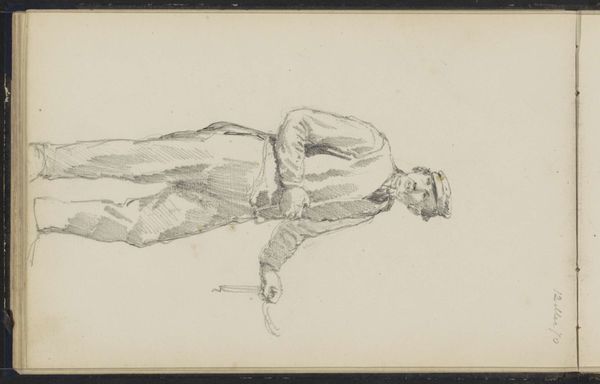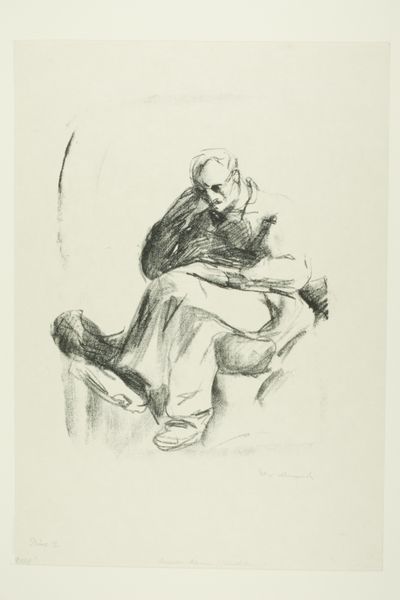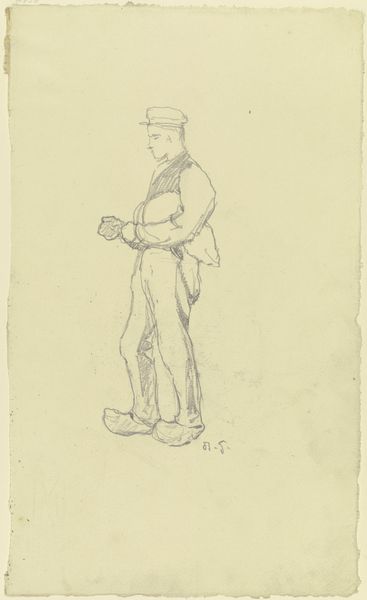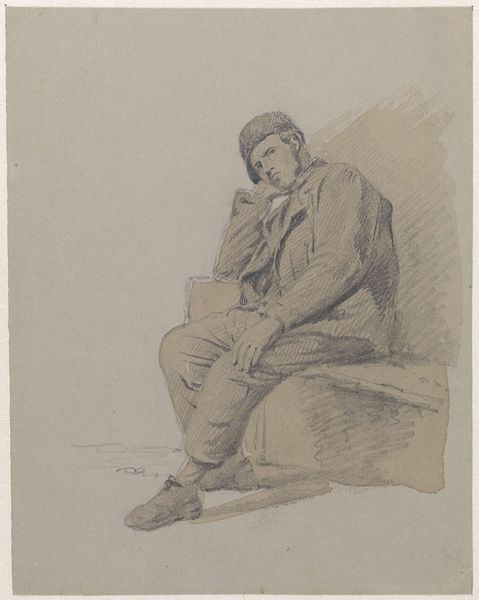
drawing, ink, pen
#
portrait
#
drawing
#
ink
#
pen-ink sketch
#
pen
#
genre-painting
#
realism
Dimensions: height 290 mm, width 222 mm
Copyright: Rijks Museum: Open Domain
Editor: We’re looking at “Soldier Reading a Letter” by Heinrich Krabbé, made before 1898 using pen and ink. I'm struck by how minimal it is, just lines really, but it still conveys such a strong sense of quiet contemplation. How do you interpret this work through a formal lens? Curator: This work's strength resides in its meticulous mark-making. Note the hatching and cross-hatching, establishing form, volume and texture. It directs the viewer's eye and articulates tonal contrasts within the restricted palette of ink on paper. Editor: So the artist's use of line is doing more than just depicting a scene, it's constructing the emotion, too? Curator: Precisely. Consider the composition: the figure, slightly off-center, balances with the stark geometry of the cot. Observe how the downward diagonal of the soldier's posture is echoed in the lines suggesting the cot’s structure. It draws the eye to the letter—the narrative crux of the piece. It's the linear construction which reveals its formal dynamism. Editor: I see what you mean! It’s interesting how a seemingly simple drawing can be broken down into these separate visual components. Did considering only these things give us the full picture, or are we missing any insights? Curator: Considering just its visual properties provides insights into structure. Analyzing form, however, isn't necessarily an exclusive mode; context and affect could enrich our comprehension. Editor: Thank you. Breaking down this piece to lines and forms and their arrangements is quite illuminating!
Comments
No comments
Be the first to comment and join the conversation on the ultimate creative platform.
